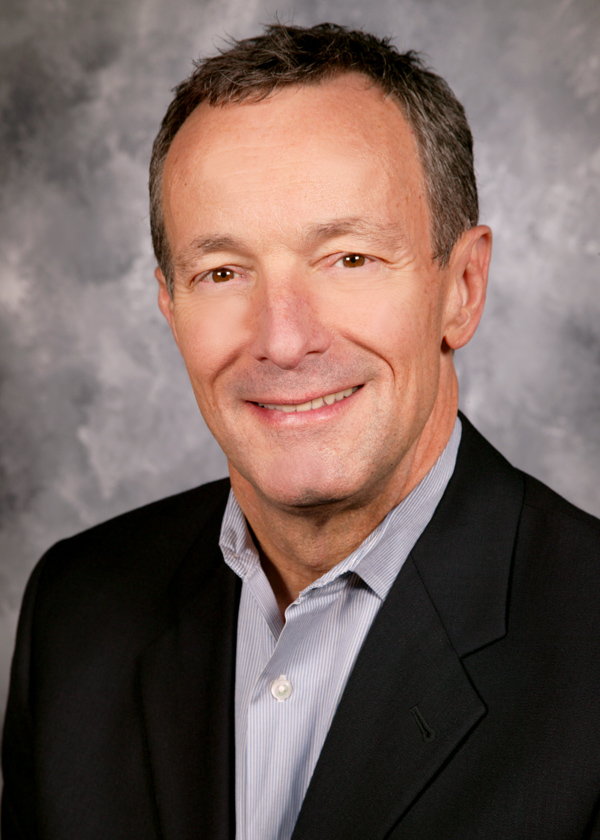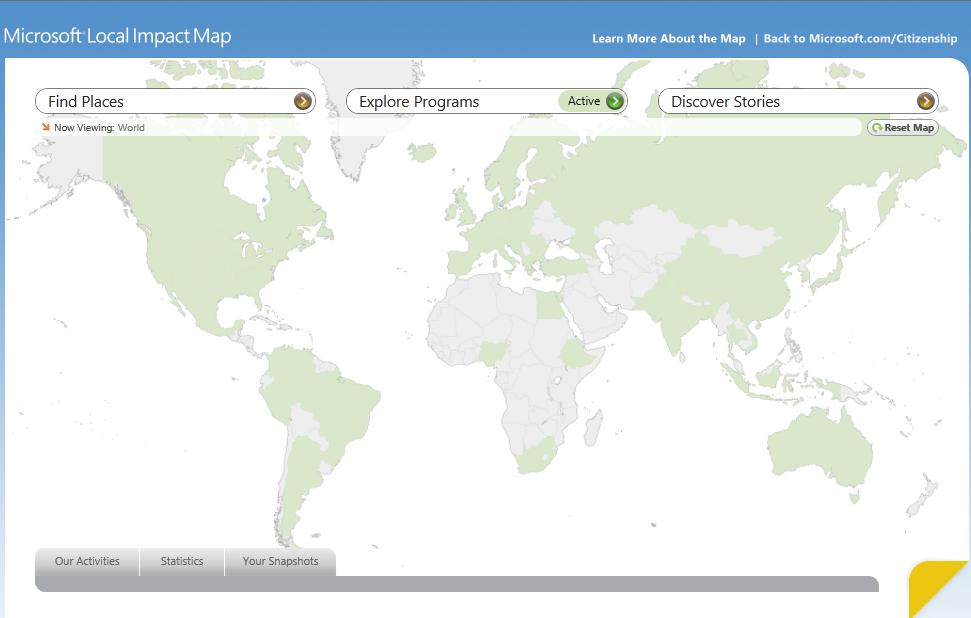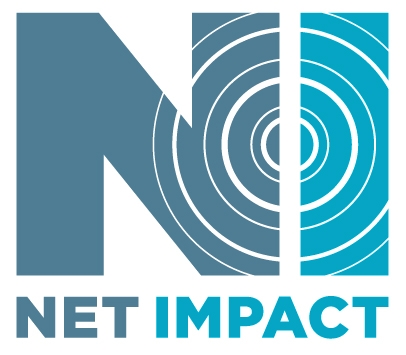Communicating Globally, Acting Locally
/ Dan Bross is senior director, Corporate Citizenship at Microsoft and one of the most visible faces of corporate social responsibility at the company.
Dan Bross is senior director, Corporate Citizenship at Microsoft and one of the most visible faces of corporate social responsibility at the company.
I first met Dan at the 2009 Net Impact Conference and recently we had the chance to reconnect at the Boston College Center for Corporate Citizenship Conference.
In between networking and learning at BCCCC, Dan was kind enough to sit down with me to talk more about Microsoft's corporate citizenship program and where it's headed.
But first, what does corporate citizenship at Microsoft look like? For starters, the company has four main areas of focus:
- Strengthening Economies through the use of technology;
- Addressing Societal Challenges like health care, energy and the environment, workforce development, and education;
- Promoting a Healthy Online Ecosystem by fostering innovation online and protecting privacy; and,
- Operating Responsibly through effective corporate governance, employee engagement, and sustainability programs.
While the company’s focus can clearly get bucketed into four categories, the overall reach of Microsoft’s corporate citizenship program – and its impacts – is much, much broader than that.
To get a sense of just how far-reaching Microsoft's program is, check out the interactive Local Impact Map. Here visitors to Microsoft’s corporate citizenship site can filter the company's social, environmental, and economic investments by region and type of initiative, as well as read stories about Microsoft's work on a local level.
 After reading through its website and playing with the map, it became clear to me that Microsoft is doing great work as a responsible and involved corporate citizen.
After reading through its website and playing with the map, it became clear to me that Microsoft is doing great work as a responsible and involved corporate citizen.
Still, I wondered, what is the company doing to tell people about it?
I asked this question for one main reason. Since I've met Dan and talked to people on his team before, I know that Microsoft is a leading player in today's corporate citizenship community. And yet, at times I've wondered how many other people out there even know that Microsoft has a CSR program in the first place? As much good work as the company is doing, you don't always hear Microsoft's name mentioned in the same sentence as other more well-known (and perhaps more vocal) CSR leaders like eBay, Gap, or Nike.
Fast forward to my conversation with Dan at BCCCC, where I started with what turned out to be a very serendipitous question: “When it comes to corporate citizenship at Microsoft, what would you say is your single biggest challenge and your single biggest opportunity?”
Interestingly Dan said right now these two things are one and the same:
It all comes down to communication.
It turns out Microsoft has done a great job reaching out to a small, select group of influencers – governments, think tanks, etc – and that its corporate citizenship message and story has successfully reached these audiences.
Yet when it comes to other stakeholders – consumers, customers, employees, and generally-interested folks like you and me – Microsoft still has some ground to cover.
Thus, according to Dan, the goal is to “broaden the audience,” do a better job of communicating more clearly, and speak to stakeholders “in a way that matters.”
An important and timely objective if I do say so myself (especially after last week's BCCCC panel on the lack of consumer trust of CSR programs).
And yet, if we think back to the Local Impact Map, this is where things get tricky. You see, Microsoft isn’t just trying to reach the American public; instead, it has a global audience to contend with. A global audience with different interests and causes to support, not to mention varying cultural preferences for the role of business in society.
The question then becomes: how can Microsoft build a global citizenship communications strategy that creates a cohesive message yet allows for flexibility across regions?
How can Microsoft literally communicate globally, but act locally?
This is the issue-at-hand for Dan and his team in the coming weeks and months, and there's clearly a lot riding on it. After all, for a company like Microsoft it’s not a stretch to say that improved CSR communications can lead to additional gains on the business side. In this way, Dan says, stakeholder communications truly can be “a continued driver for business success."
As someone who believes that CSR communications can effectively bridge the gap between companies and consumers, I'll be anxiously awaiting what happens next at Microsoft. Certainly sounds like an exciting challenge!



